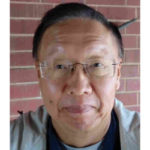Human rights are usually associated with those in the Universal Declaration, like free speech and freedom of assembly, but there are actually two opposing narratives of human rights, both having their origins at about the same time just after WWII. The second narrative, seemingly very powerful, is a right to be as wealthy as possible without government interference.
In 1948, after much deliberation among nations and with significant leadership from Australia’s Doc Evatt, the Universal Declaration of Human Rights (UDHR) was offered to the world. Most Western countries, with the exception only of Australia, accepted the UDHR by writing human rights into their constitutions. The US, of course, already had a Bill of Rights from long before.
Less well known is that one year before, in 1947, the neoliberal project was already underway. Austrian economist Friedrich Hayek, with help from economist Milton Friedman, formed the Mont Pèlerin Society with the aim of promoting free market neoliberalism. Its story is told by UNSW academic Jessica Whyte in a new book “The Morals of the Market: Human Rights and the Rise of Neoliberalism”.
According to Whyte, Hayek envisioned a competitive market order supported by a moral framework that sanctioned wealth accumulation and inequality.
“Throughout the book, I show that neoliberal thinkers cast twentieth-century attempts to secure rights to social welfare and national self-determination as threats to the market order and to ‘civilisation’ itself. Yet, I also show that neoliberals developed their own account of human rights as moral and legal supports for a liberal market order,” she wrote.
“I contend that the neoliberal contribution to human rights has been far more widely influential than most contemporary human rights defenders would like to admit—and not only on the political right or in the halls of power. Without coming to terms with that influence, social movements and struggles that wield the language of human rights to contest neoliberalism may find themselves strengthening its hold.”
One of the champions for a UDHR-based human rights charter for Australia has been Gillian Triggs, former Human Rights Commission president and now Emeritus Professor at Sydney University Law. She has pointed out that Australia’s constitution has weak protection for human rights, making only a mention of the right to political participation. Until fundamental rights are constitutionally protected, they can be easily overidden by any law passed by Parliament.
And since 2001, as journalist Brian Toohey notes in his recent book “Secret: The Making of Australia’s Security State”, there have been more than 75 separate security laws passed. These laws can override any human rights, including free speech, that we may mistakenly believe we have.
Some observers may believe that there are implied rights to free speech arising out of the constitutional right to political participation, following a number of High Court cases since 1992, but as UNSW Law Dean George Williams has said, these implied rights should be considered narrow precedents and subject to possible rejection in future cases. He is also a consistent advocate for a constitutional charter of rights. And of course, the composition of the High Court has become much more conservative since 1992.
The conclusion one might arrive at is that governments and ordinary Australians face a conundrum following the drift into neoliberalism. More than forty years chasing the wrong ideology. No real human rights protection except perhaps the right to be as wealthy as possible.
And even as neoliberal globalisation was pursued with vigour by successive governments, so too were were the social assets, physical and non-physical, necessary to be globally competitive, continually starved of resources. It has happened in education, in the power infrastructure, in water resources, in every aspect of society.
Unable to compete in a globalised world, and yet also unable to turn back from globalisation because of total dependence on world markets: That is the conundrum.
How does one repair decades of sweeping vandalism?
(The writer was a deputy editor in the Straits Times newspaper in Singapore. He has a Business Masters (Curtin) and a GradDiploma in Education (UWA)).




